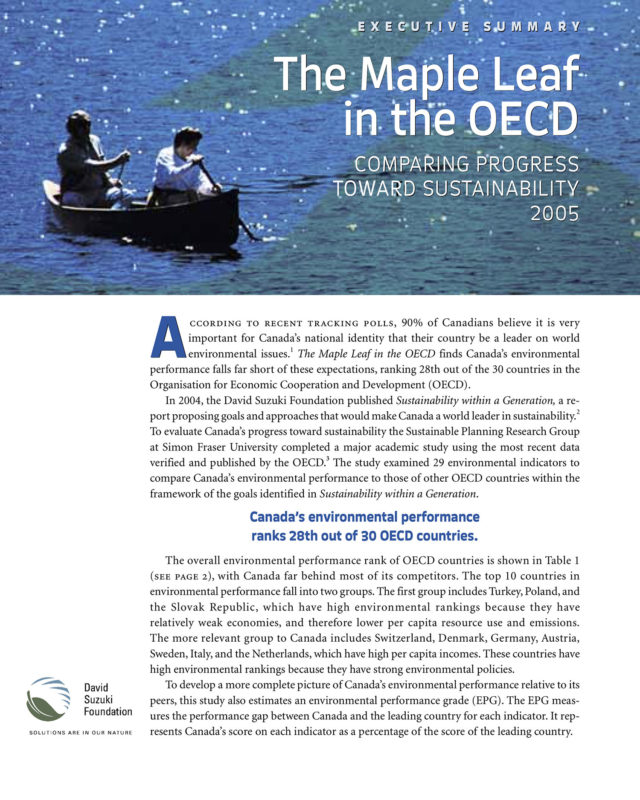EXECUTIVE SUMMARY — The Maple Leaf in the OECD: Comparing Progress toward Sustainability
Published by:
David Suzuki Foundation and partners
Partners:
Simon Fraser University School of Resource and Environmental Management
Climate solutions, Environmental rights decarbonization, renewable energy, greenhouse gas emissions, water systems, chemicals and toxins, pesticides, land use, economics
To evaluate Canada’s progress toward sustainability, the Sustainable Planning Group at Simon Fraser University completed a major academic study using data verified and published by the Organization for Economic Cooperation and Development (OECD). The study, published in October 2005, examines 29 indicators within the framework of the nine goals identified in Sustainability within a Generation to compare Canada’s environmental performance to those of the other OECD nations.
This is the executive summary of The Maple Leaf in the OECD: Comparing Progress toward Sustainability, a report that presents the major findings of the academic study. The study finds Canada ranks 28th out of the 30 member countries of the OECD based on 29 key environmental indicators.
Canada’s worst showings include:
- 28th in energy consumption
- 26th in greenhouse gas emissions
- 29th in water consumption
- 27th in sulfur oxides pollution
- 30th in nuclear waste and carbon monoxide
Canada fared better in:
- 9th recycling
- 8th pesticide use
Canada did not place first in any of the 29 indicators.
The academic study was conducted by an independent team of multidisciplinary researchers at Simon Fraser University under the direction of Thomas Gunton. A year after The Maple Leaf in the OECD was released, the David Suzuki Foundation worked with Gunton to develop draft legislation of a National Sustainability Act, designed to provide the provide the necessary legislative framework to ensure Canada does not continue to fall further behind other industrialized countries.
